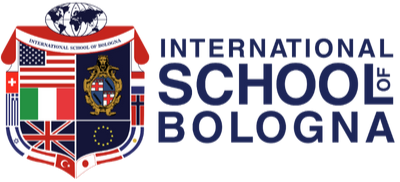International Baccalaureate (IB) Education: PYP, MYP, and DP Explained
- ISBologna
- Oct 2, 2025
- 7 min read
The International Baccalaureate (IB) is a globally recognized educational framework known for its high standards and international focus. IB programmes “strive to develop students who will build a better world through intercultural understanding and respect”. In other words, the IB aims to nurture internationally minded young people who are curious, knowledgeable, and caring. The IB curriculum is divided into three main programmes by age group – the Primary Years Programme (PYP), Middle Years Programme (MYP), and Diploma Programme (DP) – each designed to foster critical thinking, personal growth, and a global perspective.
In this article, we explain what each IB programme entails, discuss why studying at an IB school is beneficial, and introduce how the International School of Bologna (ISB) implements these programmes. ISB is the only IB continuum school in Bologna, meaning it offers all three IB programmes (PYP, MYP, and DP) for students from early childhood through high school.

What is the IB Primary Years Programme (PYP)?
The Primary Years Programme (PYP) is the IB curriculum for young learners (approximately ages 3–12). It focuses on developing the whole child as an inquirer, both in the classroom and in the world beyond. The PYP “nurtures and develops young students as caring, active participants in a lifelong journey of learning”.
Rather than a traditional subject-by-subject approach, the PYP uses an inquiry-based, transdisciplinary curriculum framework. Learning is organized under six transdisciplinary themes of global significance, such as “Who We Are” and “How the World Works”, which span across subjects. This means PYP students explore big ideas and questions, making connections between language, mathematics, science, social studies, arts, and other areas.

Through guided inquiry and hands-on projects, children build conceptual understanding and develop crucial skills like critical thinking and collaboration from an early age. The PYP’s emphasis on student-centered learning and real-world relevance leads to an education that is engaging, relevant, challenging, and significant for young children. In fact, the IB PYP is regarded as a world leader in forward-thinking primary education, reflecting the best practices from schools around the globe.
What is the IB Middle Years Programme (MYP)?
The Middle Years Programme (MYP) is designed for students roughly age 11 to 16, bridging the gap between elementary and high school. The MYP provides a challenging framework that encourages students to make practical connections between their studies and the real world. This programme builds on the inquiry approach of the PYP, while expanding into more structured subject learning and interdisciplinary projects.
In the MYP, students study across eight subject groups (for example, Language & Literature, Individuals & Societies, Sciences, Mathematics, Arts, etc.), ensuring a broad and balanced education for early adolescents. The curriculum is still flexible and inclusive – it can be adapted to local requirements and is suitable for students of varied interests and academic abilities. All MYP students also take part in units that integrate multiple subjects, showing them how knowledge is linked across disciplines.

A hallmark of the MYP is its focus on real-world application. Classroom learning often involves investigating real problems and thinking critically about global and community issues. In the final year of the MYP, students undertake a significant Personal Project: an independent project on a topic of their choice. Through the Personal Project, learners “explore an area of personal interest over an extended period… and develop important skills they’ll need in both further education and life beyond the classroom,” gaining confidence as self-directed, lifelong learners. Completing the MYP prepares students well to enter the rigorous Diploma Programme (or any other 16–19 curriculum) because it builds the study habits and knowledge base needed for advanced coursework.
What is the IB Diploma Programme (DP)?
The Diploma Programme (DP) is a two-year pre-university curriculum for students about age 16 to 19. Established in 1968, the DP was the first IB programme and today it’s one of the most respected secondary education qualifications worldwide. The IB Diploma Programme aims to develop students who have excellent breadth and depth of knowledge and who flourish physically, intellectually, emotionally and ethically.
DP students study six subjects across different disciplines (usually three at higher level and three at standard level) and complete the three core components of the DP: Theory of Knowledge (TOK), Creativity, Activity, Service (CAS), and the Extended Essay (EE). The six subjects include languages, social sciences, experimental sciences, mathematics, and the arts, ensuring that students receive a well-rounded education. Through the Diploma Programme core, students reflect on the nature of knowledge (TOK), engage in creative pursuits and community service (CAS), and conduct independent research through a 4,000-word essay (EE).

This comprehensive curriculum not only builds strong academic skills but also fosters time management, research abilities, and ethical awareness. IB Diploma assessments are externally moderated and standardized worldwide, so an IB Diploma earned in Italy is equivalent in value to one earned in any other country. Universities around the globe recognize and respect the IB Diploma – evidence suggests that higher rates of IB DP students go on to university and complete their degrees than their non-IB peers. In fact, top universities often actively recruit IB students; as one Harvard admissions director noted, “Success in an IB program correlates well with success at Harvard… We are always pleased to see the credentials of the IB Diploma Programme on the transcript”. For students, the DP provides an ideal preparation for university and future careers, by fostering independent learning, critical thinking, and a global outlook.
Why Study in an IB School? – Benefits of an IB Education
Choosing an IB school means choosing an international education that goes beyond mastering content knowledge. The IB philosophy and approach offer several key benefits for students:
Global Recognition & University Preparedness: IB programmes are globally benchmarked and held to high academic standards. The IB Diploma, in particular, is “recognized and respected by the world’s leading universities”, with IB graduates often enjoying higher university acceptance and completion rates. An IB education prepares students to thrive in higher education by developing advanced research, writing, and study skills in high school.
Critical Thinking & Independent Learning: IB schools emphasize how to learn, not just what to learn. Students are encouraged to question, explore, and reflect. They “take responsibility for their own learning and understand how knowledge itself is constructed… [and] try different approaches to learning”. This inquiry-based mindset trains students to become self-motivated, independent learners – a skill that benefits them in university and in life.
Holistic Development: The IB’s goal is to educate the whole person. Academic learning is combined with character development, creativity, physical activity, and service to the community. For example, through CAS projects and other parts of the curriculum, IB students gain experience in leadership, artistic expression, teamwork, and community involvement. They graduate not only with strong academic knowledge, but also with valuable life skills and a positive attitude. For instance, IB students often demonstrate independent research skills, community engagement, multicultural understanding, and a strong desire to make a difference around them – attributes that set them up for success in adulthood.
Intercultural Understanding & Global Mindset: By its very nature, an International Baccalaureate education instills a global perspective. IB students study world cultures, learn foreign languages, and discuss global issues throughout their courses. According to the IB mission, all IB programs aim to develop young people who recognize their common humanity and “help to create a better and more peaceful world” through intercultural understanding. Studying in an IB school often means being part of a diverse, multicultural community where respect and open-mindedness are the norm. This environment prepares students to navigate an increasingly interconnected world with empathy and confidence.
Learner Profile Values: At the heart of the IB is the Learner Profile – a set of attributes like being inquirers, knowledgeable, thinkers, communicators, principled, open-minded, caring, risk-takers, balanced, and reflective. These values are woven into everything that happens at an IB school. The result is that IB students typically develop into well-rounded individuals who not only excel academically but also grow into compassionate, open-minded global citizens.
Overall, the IB’s balanced approach to education helps children become agile learners and globally conscious citizens. It’s no surprise that parents choose IB schools to give their children an edge – not just for college admissions, but for life as engaged, ethical members of a global society.
The IB at International School of Bologna (ISB)
As an IB World School, the International School of Bologna is proud to offer all three IB programmes – PYP, MYP, and DP – providing a continuous IB education from age 3 through 18. ISB is in fact the only school in Bologna with this full IB continuum. This means that a child at ISB can begin their IB journey in early childhood and continue seamlessly through elementary, middle, and high school without changing schools. Our curricula in each division (Early Years, Elementary, Middle School, and High School) all follow the IB framework, guided by the same core principles of inquiry, intercultural understanding, and holistic development.
Being an IB continuum school allows ISB to create a cohesive educational experience. Skills and attitudes developed in the PYP carry forward and are built upon in the MYP and DP. Students benefit from a consistent approach to teaching and learning, and teachers collaborate across grade levels to ensure each student’s growth. By the time our students reach the Diploma Programme, they are well-accustomed to IB’s academic rigor and learner profile values, positioning them for success in the challenging DP exams and beyond.

ISB’s learning environment strongly reflects the IB ethos. We have a truly international community – our student body represents over 45 nationalities, and more than half of our students are from international backgrounds. Learning alongside peers from around the world every day helps children at ISB develop cultural awareness and respect, embodying the IB spirit of international-mindedness. Our classes are taught in English, and many students and staff are multilingual, further enriching the cross-cultural experience.
Moreover, ISB is committed to small class sizes and individualized support (with a low student-teacher ratio of 6:1. ensuring that each learner is known and supported. Our IB-trained educators implement the curriculum in a way that challenges students to think deeply while also caring for their social-emotional development. Consistent with our mission, we “foster academic excellence in a challenging, inclusive, and supportive environment” for all students. The IB programmes at ISB are not just about academic content – they are about instilling a love of learning, a sense of global citizenship, and the confidence to pursue one’s passions.
.
After over 20 years as a leader in international education in Italy, ISB has seen firsthand the benefits of the IB approach. Our graduates (beginning with our first graduating class in 2017) have gone on to attend top universities around the world, equipped with the critical thinking skills and adaptability that the IB nurtures. More importantly, they leave ISB as well-rounded young adults who are eager to make a positive impact in their communities – truly embodying the IB ideal of education for a better world.
For families interested in an international education experience, the IB programmes offer an outstanding pathway. At the International School of Bologna, we welcome you to learn more about our IB PYP, MYP, and DP programmes and see how this world-class education can benefit your child.




























